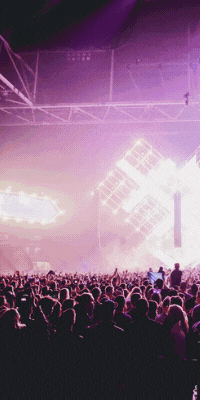Music News - Musicians reap benefits from RAP fund
25 May 2007 - 0 Comments
Next time you’re at the gym or enjoying a latte in your favourite café and Elemeno P’s ‘Verona’ kicks in, spare a thought for the band.
If the venue has paid its performance licence, Dave Gibson and his colleagues may be able to afford to buy some new equipment next August. If it hasn’t, they won’t.
Spring is when artists get their annual RAP [1] Fund royalties from PPNZ (Phonographic Performances New Zealand) – the agency that licenses premises to play recorded music in public.
PPNZ licences and collects funds from cafés, venues, pubs, broadcasters and a host of other places where recorded music is performed to and for the public. It then distributes those funds annually to the copyright owners of the music – the record companies and musicians.
For the likes of Elemeno P, the fund provides a welcome return on the band’s creative investment.
“I guess the big thing for us is the funds are paid directly to us and it’s a regular payment,” Elemeno P vocalist Dave Gibson says. “You sort of don’t think about it and wham, this statement arrives in the mail, the money is deposited into our account and it’s enough to buy you a new amp, put some aside for tours or pay some bills.”
It is very difficult for New Zealand musicians to make a living out of their creative work. Dave’s – and every artist’s – problem is that not every place that plays recorded music believes it needs to take out a licence.
This year PPNZ turns 50. But even after half a century, getting businesses to cough up is a tough ask.
Mark Roach, General Manager of Licensing at PPNZ, says he and his staff spend a lot of time explaining to reluctant music venues why they need to pay up.
“The Copyright Act 1994 gives copyright owners the right to determine how and when their property is used. Because of the large number of rights owners involved, PPNZ was set up to centrally administer permission on behalf of the copyright owners – generally the record labels and musicians.”
“It’s not a lot of money for the benefit a business get from playing music – $150 a year for a medium-sized retail outlet or a café seating up to 100 people. That’s 41 cents a day.”
Roach says many businesses seem to regard music has a free commodity. He gets lots of excuses such as ‘but I bought and paid for the CD so why can’t I use it in the restaurant?’.
“The thing is the CD purchase entitles the owner to enjoy music domestically. As soon as you play recorded music in a commercial environment accessible to the public, you need the permission of the copyright owners.
“Look at it this way. If a venue or shop is using music to add value to their business then it’s only right that the people who produce and own that music are reimbursed for the service they are providing.”
Dave Gibson says the band’s record company first told them about the RAP fund.
“It’s important for artists to register their tracks with PPNZ when they produce them to ensure they get paid because they don’t pay retrospectively – you’ve got to be in it to win it.”
The royalties are calculated annually and you get a cheque every year so it’s no use going back to PPNZ and asking to be paid for recordings played publicly in 1995 or even 2005 – those funds have already been distributed.
PPNZ expects to distribute funds to about 650 bands and 55 labels this year. It estimates it has paid out about $7 million since the RAP Fund’s first distribution eight years ago.
Most Viewed Artists
Latest Galleries
NZ Top 10 Singles
- APT.
ROSÉ And Bruno Mars - DIE WITH A SMILE
Lady Gaga And Bruno Mars - BIRDS OF A FEATHER
Billie Eilish - TASTE
Sabrina Carpenter - I LOVE YOU, I'M SORRY
Gracie Abrams - ESPRESSO
Sabrina Carpenter - SAILOR SONG
Gigi Perez - LOSE CONTROL
Teddy Swims - A BAR SONG (TIPSY)
Shaboozey - GOOD LUCK, BABE!
Chappell Roan








 Report A Problem
Report A Problem


There are currently no comments for this article. Please log in to add new comments.